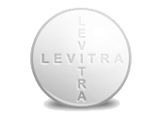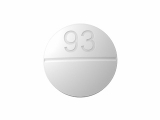Erectile issues in men over 50
As men age, they may experience difficulties in achieving and maintaining an erection. This condition, known as erectile dysfunction (ED), affects millions of men worldwide. ED can negatively impact a man's overall quality of life, including relationships and self-esteem. It is important to understand the causes, symptoms, and treatments available for ED in men over 50.
Causes: Erectile dysfunction can be caused by a variety of factors, including physical, psychological, and lifestyle factors. In men over 50, the most common physical factors include diabetes, heart disease, high blood pressure, and hormonal imbalances. Psychological factors can include anxiety, stress, and depression. Lifestyle factors such as smoking, alcohol consumption, and a sedentary lifestyle may also contribute to ED.
Symptoms: The most common symptom of ED is the inability to achieve or maintain an erection sufficient for sexual intercourse. Other symptoms can include reduced libido, premature ejaculation, and delayed ejaculation.
Treatments: The treatment for ED in men over 50 may depend on the underlying cause of the condition. Lifestyle changes such as quitting smoking, reducing alcohol consumption, and regular exercise may help improve ED symptoms. Medications such as Sildenafil (Viagra), Tadalafil (Cialis), and Vardenafil (Levitra) are commonly prescribed to treat ED. Other treatments may include testosterone replacement therapy or psychotherapy to address underlying psychological issues.
Don't let erectile dysfunction affect your quality of life. Talk to your healthcare provider to understand the causes and treatment options available for ED in men over 50.
The Prevalence and Impact
How Common is Erectile Dysfunction?
Erectile dysfunction (ED) is a common problem affecting men over the age of 50. According to the National Institute of Diabetes and Digestive and Kidney Diseases, it is estimated that up to 30 million men in the United States alone experience ED. The prevalence of ED increases with age, with approximately 50% of men between the ages of 40 and 70 experiencing some degree of ED.
The Impact of Erectile Dysfunction
ED can have a significant impact on a man's quality of life, self-esteem, and relationships. It can also be a sign of underlying health conditions such as heart disease, diabetes, or high blood pressure. Many men feel embarrassed or ashamed to discuss their ED with their partners or healthcare providers.
However, it is important to address ED and seek treatment as it can improve overall health and well-being. There are many treatment options available, including medications, therapy, and lifestyle changes such as exercise and diet modifications.
- Medications: Oral medications such as sildenafil (Viagra) and tadalafil (Cialis) are commonly prescribed for ED.
- Therapy: Counseling or therapy may help to address underlying psychological factors contributing to ED.
- Lifestyle Changes: Regular exercise, a healthy diet, and quitting smoking can improve overall health and reduce the risk of ED.
If you or someone you know is experiencing ED, it is important to seek professional help and explore treatment options. Don't suffer in silence. Talk to your healthcare provider today.
Causes of Erectile Dysfunction
Physical Causes
Erectile dysfunction in men over 50 is often the result of physical causes, such as:
- Cardiovascular disease
- High blood pressure
- Diabetes
- Obesity
- Low testosterone
- Injury to the penis or prostate gland
- Neurological disorders
These physical causes can damage the blood vessels that supply blood to the penis, or affect the nerves that control the ability to have an erection.
Psychological Causes
Erectile dysfunction may also be caused by psychological factors, such as:
- Anxiety
- Stress
- Depression
- Relationship problems
These factors can interfere with the brain's ability to send signals to the penis to create an erection, or cause a lack of interest in sexual activity.
Lifestyle Causes
Other causes of erectile dysfunction in men over 50 may be related to lifestyle factors, including:
- Smoking
- Alcohol consumption
- Drug use
- Unhealthy diet
- Lack of exercise
These lifestyle factors can lead to poor overall health, including reduced blood flow to the penis and decreased testosterone levels. Making positive changes to one's lifestyle can often improve erectile function.
Common Symptoms and Signs
Erectile Difficulties
Erectile dysfunction is the most common symptom of male sexual dysfunction and can be experienced as the inability to achieve or maintain an erection during sexual activity. This symptom can manifest as a decrease in the rigidity of erections or a shorter duration of erections.
Decreased Libido
A decrease in libido, or sex drive, can be another symptom of erectile dysfunction. Men may experience a decreased interest in sexual activity, which can lead to a lack of erections or difficulty achieving an erection.
Physical Signs
In some cases, physical signs may be present, such as a decrease in the size of the testicles or breast enlargement. These signs can be indicative of an underlying medical condition that may be contributing to erectile dysfunction.
Emotional Symptoms
Erectile dysfunction can also have emotional symptoms, including anxiety, depression, and stress. These emotions can be a result of the sexual dysfunction itself or the underlying medical condition causing it.
Urinary Symptoms
Urinary symptoms such as increased frequency, urgency, and difficulty urinating may also be present in men with erectile dysfunction. These symptoms can be indicative of an underlying medical condition contributing to the sexual dysfunction.
Conclusion
If you are experiencing any of these symptoms, it is important to speak with your healthcare provider. Treatment options are available and can help improve sexual function and quality of life.
Medical and Non-Medical Treatments
Medical Treatments
Medical treatments for erectile dysfunction in men over 50 include prescription medications like Viagra, Cialis, and Levitra. These medications work by increasing blood flow to the penis during sexual stimulation, which helps to achieve and maintain an erection. However, these medications can also have side effects like headaches, flushing, and stomach upset.
In some cases, injections and suppositories may be used to deliver medication directly to the penis. These treatments may be more effective for men who do not respond well to oral medications. However, the use of injections and suppositories also has potential side effects like pain and redness at the injection site.
Non-Medical Treatments
Non-medical treatments for erectile dysfunction in men over 50 include lifestyle changes, psychological counseling, and alternative therapies like acupuncture. Lifestyle changes like losing weight, exercising regularly, and reducing alcohol intake can help to improve sexual function.
Psychological counseling can be helpful for men who have underlying mental health issues that may be contributing to their erectile dysfunction. Alternative therapies like acupuncture may also be effective in some cases, although more research is needed to establish their efficacy.
It is important to work with a healthcare provider to determine the best course of treatment for erectile dysfunction in men over 50, as the condition can have a variety of underlying causes.
Lifestyle Changes and Prevention
Diet
Healthy eating habits can help you maintain a healthy weight and reduce your risk of developing erectile dysfunction. Incorporating more fruits, vegetables, and lean protein into your daily diet can improve your overall health. Avoiding foods high in saturated fat, sodium, and processed sugar may also improve your erectile function.
Exercise
Regular physical activity is a key component to maintaining a healthy body and reducing your risk of developing erectile dysfunction. Aim for at least 30 minutes of exercise each day, such as walking, cycling, or swimming. Exercise may improve blood flow, reduce stress, and help you maintain a healthy weight.
Sleep
Getting enough sleep is important for overall health, including your sexual health. Poor sleep can lead to increased stress levels, fatigue, and decreased libido. Aim for 7-8 hours of sleep each night to help improve your erectile function.
Stop Smoking and Limit Alcohol Consumption
Smoking and excessive alcohol consumption are both risk factors for erectile dysfunction. Quitting smoking and limiting alcohol consumption may help improve erectile function. Seek support from healthcare professionals or support groups if needed.
Reduce Stress
Stress can impact your overall health and sexual function. Finding healthy ways to manage stress, such as through exercise, meditation, or therapy, may help improve your erectile function. Make time for activities that you enjoy and find relaxing.
Regular Check-ups with Your Healthcare Provider
Regular check-ups with your healthcare provider can help identify and treat any potential health issues that may contribute to erectile dysfunction. Discuss any concerns you may have about your sexual function with your healthcare provider.
Follow us on Twitter @Pharmaceuticals #Pharmacy
Subscribe on YouTube @PharmaceuticalsYouTube





Be the first to comment on "Erectile issues in men over 50"